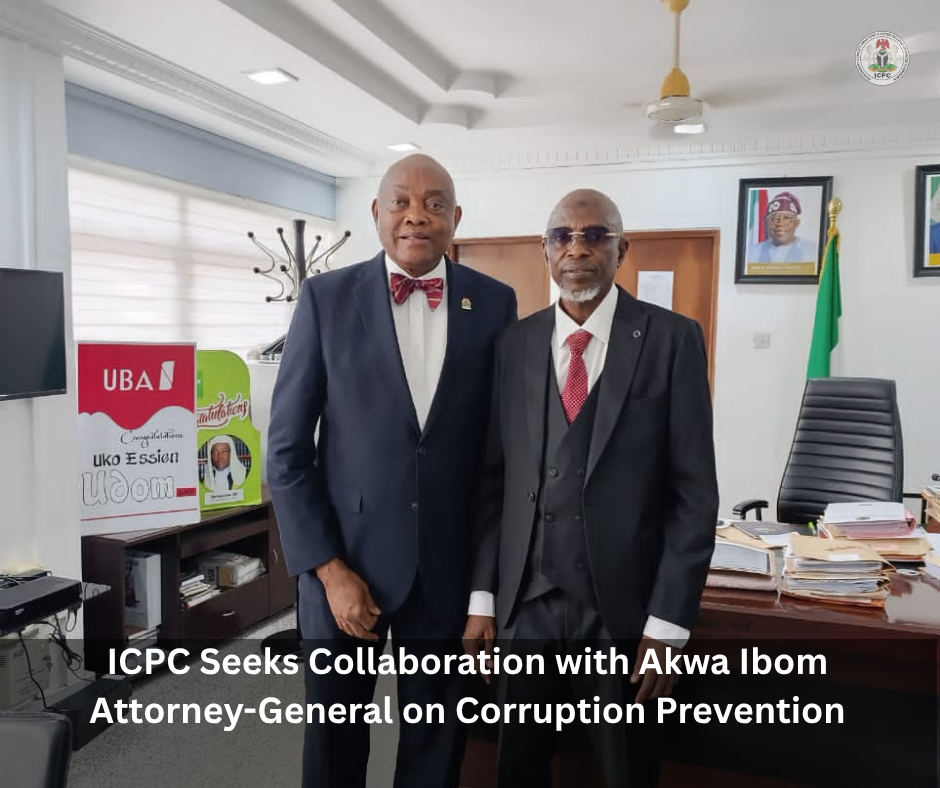The Independent Corrupt Practices and Other Related Offences Commission (ICPC) has called for collaboration with the Akwa Ibom State Government to strengthen institutional frameworks for corruption prevention.
This call was made by the Resident Anti-Corruption Commissioner (RACC) for Akwa Ibom State, Mr. Baba Alaro Shuaib, during a courtesy visit to the Attorney-General and Commissioner for Justice, Akwa Ibom State, Mr. Uko Essien Udom, SAN, at his office in the Ministry of Justice, Idongesit Nkanga Secretariat, Uyo, recently.
In his remarks, Mr. Shuaib outlined the three-pronged mandate of the ICPC: Enforcement, Prevention, and Public Engagement, stressing that beyond enforcement, the Commission is mandated to prevent corruption and mobilize the public against corrupt practices through education and enlightenment.
He advocated collaboration with the state government to establish preventive frameworks in MDAs, particularly through system study and corruption risk assessment.
“We believe that setting up robust internal frameworks, backed by continuous assessment and transparency units in MDAs, will go a long way in reducing corruption risks,” he stated.
The RACC also highlighted the role of Anti-Corruption and Transparency Units (ACTUs) in combating corruption within MDAs and reiterated the ICPC’s public awareness initiatives, including the National Ethics and Integrity Policy, the National Values Curriculum, Anti-Corruption Clubs in schools, and the Students’ Anti-Corruption Vanguard in tertiary institutions.
He appealed for the Attorney-General’s support in promoting synergy between the ICPC and the state government.
The Attorney-General, Mr. Uko Essien Udom, SAN, in his response appreciated the visit and the insight provided into the broader mandates of the ICPC, admitting that many officials had only perceived the Commission from an enforcement perspective.
Mr. Essien disclosed that the state is developing a framework for a Public Procurement Law, noting that procurement processes are often prone to corrupt practices.
He assured that the ICPC would be consulted where necessary and promised to brief the Governor on the Commission’s initiatives to foster deeper collaboration.
The visit was concluded with a vote of thanks by the RACC and presentation of IEC materials to the Attorney-General.


